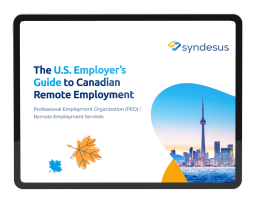In the global war for engineering talent, US tech companies continue to be dealt setbacks when it comes to US immigration policy. The H-1B is under scrutiny, and its future is uncertain. The future of the TN Visa for Canadian and Mexican tech professionals also faces an uncertain future with the potential end of NAFTA.
This uncertainty creates another question: Do immigrating professionals even want to come to the US? What if the most brilliant minds in the world feel so unwelcome in the US they decide to go to more immigrant-friendly countries like Canada, the UK, or Australia? The long-term effects on company growth will be affected by a limited talent pool in the US
US tech companies already have significant issues regarding immigration policy when making hiring plans to address future headcount growth for engineers. Perhaps there is a way to simplify it.
One way to address this issue is to build an engineering-focused satellite office in a country that is more immigrant-friendly than the US This gives the US company the ability to retain current engineers that cannot stay in the US (i.e. due to losing in the H-1B lottery) or those who may be reluctant to come to the US
At Syndesus, we think the best solution is for US tech companies to set up these remote operations in nearby Canada. This solves the problem of H-1B workers who cannot stay in the US since the US company can either incorporate in Canada or utilize a private employment organization (PEO) in Canada to employ those workers. Canada’s new engineer-focused Global Talent Stream (Read more about this at “Canada Global Skill Strategy Proving to be a Winner in Canada” offers work visas issued in 30 – 60 days for qualified applicants in the tech sector.
This is a win-win for American companies they work for, the skilled immigrant workers, and the Canadian communities they will live in.
Read more about the solutions Syndesus offers for retaining highly skilled tech workers on US visas here.






